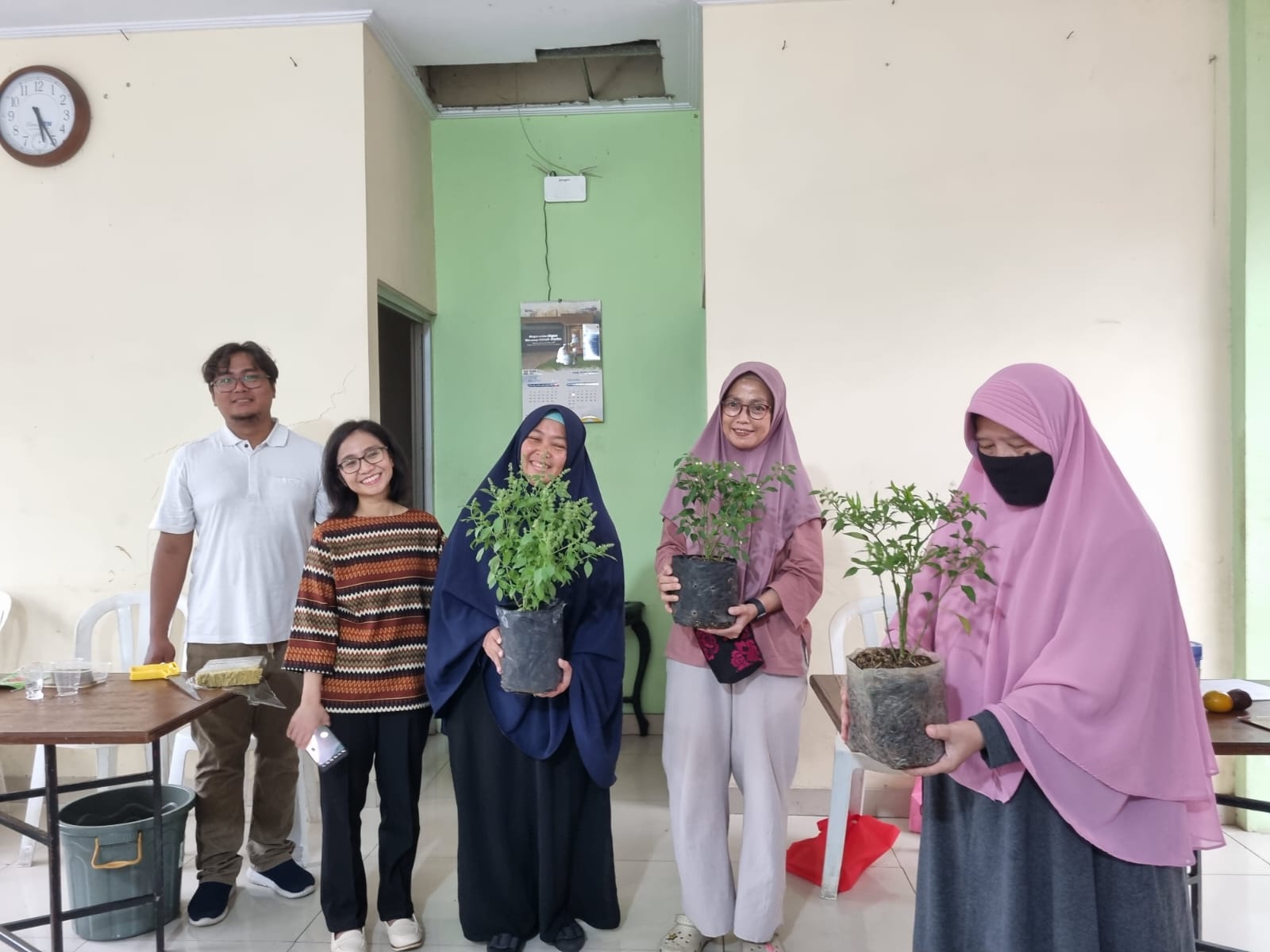In celebration of World Food Day on October 16, 2024, the Faculty of Public Health (FPH) at the Universitas Indonesia (UI) held an urban farming training session in Cipayung, East Jakarta. This initiative was led by Dr. Lhuri Dwianti Rahmartani, M.Epid, B.Med.Sc., D.Phil., a lecturer from the Department of Epidemiology at FPH UI, in collaboration with the Family Welfare Empowerment (PKK) group of RT 005/RW 008 and supported by a community service grant from UI. Through this activity, Dr. Lhuri aimed to enhance residents’ understanding of healthy food choices, the use of limited land for cultivation, and government programs available to the public.
World Food Day aims to raise awareness about food security issues. Food security is a central aspect of efforts to improve public health, including the prevention of hunger and malnutrition. Malnutrition is a particularly critical issue as Indonesia faces a triple burden of malnutrition, which includes undernutrition, overnutrition, and micronutrient deficiencies. One of the biggest challenges is the national priority of stunting, which, according to the latest data, has a prevalence of 21.5% in Indonesia in 2023.
Food security is the responsibility of the government, but the community can also play an active role. Urban farming is one effort that can be carried out at the household level to support local food security. The urban farming training in Cipayung introduced residents to various methods of utilizing limited land for food production, such as hydroponics, aquaponics, and other simple farming techniques. Participants were also provided with planting media, seeds, and fertilizers to grow at home.
Hydroponics is a method of growing plants without soil, using water enriched with nutrients instead. This technique is ideal for urban areas because it saves space and water. Meanwhile, aquaponics combines plant cultivation with fish farming in a single integrated system, where fish waste serves as a natural fertilizer for the plants. Both methods are considered effective for utilizing limited space while producing high-quality food.
While urban farming is not a central sector for fulfilling national food needs, it can be a small step in reducing dependence on external food supplies. Additionally, urban farming can serve as a symbol of sustainability and food independence at the household level. “Although not everyone has the time and resources to practice urban farming, this small step still contributes to increasing public awareness about the importance of healthy food choices,” Dr. Lhuri explained.
Through urban farming, communities can meet a small portion of their food needs, such as additional vegetables and herbs. On a larger scale, it could even become a source of additional income. The government has currently provided various programs and initiatives, including free plant seedlings and the purchase of homegrown produce. This year’s World Food Day serves as a reminder of the importance of both the government’s commitment and the community’s role in achieving national food security.

